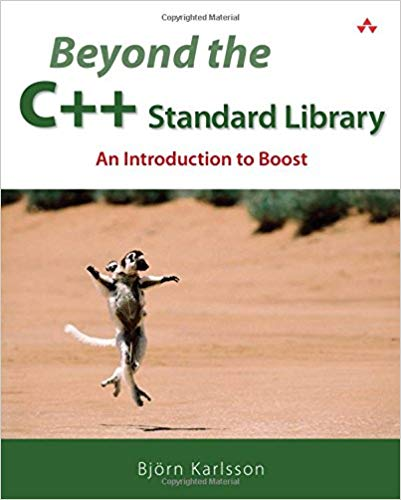百度云及其他网盘下载地址:点我
作者简介
Björn Karlsson works as a Senior Software Engineer at ReadSoft, where he spends most of his time designing and programming in C++. He has written a number of articles about C++ and the Boost libraries for publications such as C/C++ Users Journal, Overload, and the online journal The C++ Source.
Karlsson is a member of the advisory board for The C++ Source and has been a member of the editorial board of C/C++ Users Journal, where he is also one of the columnists in the Experts Forum. He participates in the Boost newsgroups and is one of the Boost-Users moderators.
目录
Foreword.
Preface.
Acknowledgments.
About the Author.
Organization of This Book.
Introduction to Boost.
String and Text Processing
Data Structures, Containers, Iterators, and Algorithms
Function Objects and Higher-Order Programming
Generic Programming and Template Metaprogramming
Math and Numerics
Input/Output
Miscellaneous
I. GENERAL LIBRARIES.
Library 1: Smart_ptr.
How Does the Smart_ptr Library Improve Your Programs?
When Do We Need Smart Pointers?
How Does Smart_ptr Fit with the Standard Library?
scoped_ptr
scoped_array
shared_ptr
shared_array
intrusive_ptr
weak_ptr
Smart_ptr Summary
Library 2: Conversion.
How Does the Conversion Library Improve Your Programs?
polymorphic_cast
polymorphic_downcast
numeric_cast
lexical_cast
Conversion Summary
Library 3: Utility.
How Does the Utility Library Improve Your Programs?
BOOST_STATIC_ASSERT
checked_delete
noncopyable
addressof
enable_if
Utility Summary
Library 4: Operators.
How Does the Operators Library Improve Your Programs?
Operators
Usage
Operators Summary
Library 5: Regex.
How Does the Regex Library Improve Your Programs?
How Does Regex Fit with the Standard Library?
Regex
Usage
Regex Summary
II. CONTAINERS AND DATA STRUCTURES.
Library 6: Any.
How Does the Any Library Improve Your Programs?
How Does Any Fit with the Standard Library?
Any
Usage
Any Summary
Library 7: Variant.
How Does the Variant Library Improve Your Programs?
How Does Variant Fit with the Standard Library?
Variant
Usage
Variant Summary
Library 8: Tuple.
How Does the Tuple Library Improve Your Programs?
How Does the Tuple Library Fit with the Standard Library?
Tuple
Usage
Tuple Summary
III. FUNCTION OBJECTS AND HIGHER-ORDER PROGRAMMING.
Library 9: Bind.
How Does the Bind Library Improve Your Programs?
How Does Bind Fit with the Standard Library?
Bind
Usage
Bind Summary
Library 10: Lambda.
How Does the Lambda Library Improve Your Programs?
How Does Lambda Fit with the Standard Library?
Lambda
Usage
Lambda Summary
Library 11: Function.
How Does the Function Library Improve Your Programs?
How Does Function Fit with the Standard Library?
Function
Usage
Function Summary
Library 12: Signals.
How Does the Signals Library Improve Your Programs?
How Does Signals Fit with the Standard Library?
Signals
Usage
Signals Summary
Bibliography.
Index.






















 224
224











 被折叠的 条评论
为什么被折叠?
被折叠的 条评论
为什么被折叠?








